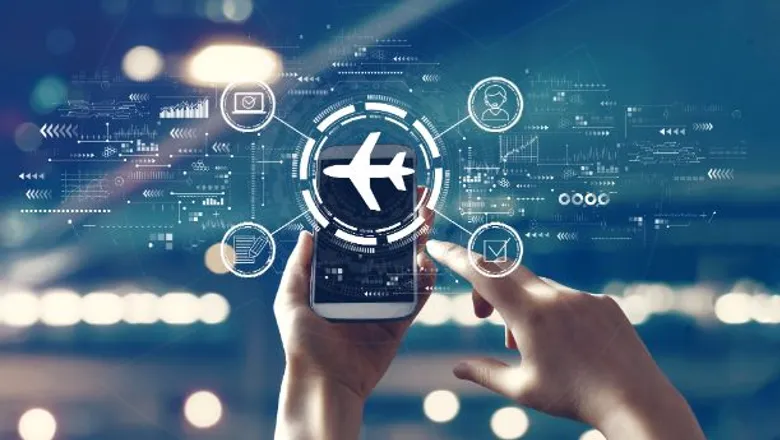From the moment you begin planning until you return home, digital transformation in the travel industry is reshaping every aspect of your trips.
In this article, we’ll explore how these technological advancements are transforming the way you travel, making your adventures more convenient, immersive, and memorable than ever before.
How Mobile Apps Are Transforming the Travel Experience
For quite some time, mobile apps have revolutionized how we plan, book, and experience travel. Here are the most important highlights:
All-in-One Travel Planning
Mobile apps have streamlined the travel planning process, consolidating multiple services into a single platform. From flight and hotel bookings to itinerary management and local recommendations, these apps serve as virtual travel agents. You can effortlessly compare prices, read reviews, and make reservations without switching between multiple websites or making phone calls.
Real-Time Updates and Notifications
One of the most significant advantages of travel apps is instant updates. Flight delays, gate changes, and weather alerts are delivered directly to your smartphone, helping to stay informed and adapt the plans accordingly. This real-time information reduces stress and uncertainty, especially during unforeseen circumstances.
Enhanced On-the-Go Experience
Mobile apps have transformed the way we navigate unfamiliar destinations. With features like offline maps, language translation, and augmented reality city guides, you can explore with confidence. These apps often integrate with local transportation systems, making it easier to book rides, purchase tickets, and find the most efficient routes in foreign cities.
Personalization — Creating Tailored, Dynamic Travel
Gone are the days of one-size-fits-all itineraries. Today’s travelers expect curated experiences that cater to their unique preferences and needs.
Real-Time Customization
The beauty of personalization lies in its ability to adapt in real-time. As you interact with travel apps and websites, the content you see dynamically shifts to reflect your choices. This means that each time you log in, you’re presented with options that become increasingly relevant to your tastes. From flight suggestions to hotel recommendations, every aspect of your travel planning becomes more refined and attuned to your desires.
Personalized On-Trip Experiences
Personalization doesn’t stop once you’ve reached your destination. Smart travel apps now offer customized itineraries that evolve based on your in-trip behavior. If you linger at a particular museum or rave about a local restaurant, the app might suggest similar experiences nearby. This level of responsiveness ensures that your travel experience remains fresh, exciting, and uniquely yours throughout your journey.
The Impact of Dynamic Pricing on the Travel Industry
Dynamic pricing strategy uses algorithms to adjust prices in real-time based on various factors, creating both opportunities and challenges for travelers and businesses alike.
How Dynamic Pricing Works
Dynamic pricing algorithms analyze multiple variables, including demand, availability, seasonality, and competitor pricing. This allows travel companies to optimize their pricing strategies, maximizing revenue during peak periods and attracting customers during slower times. For example, airline ticket prices may fluctuate multiple times a day based on seat availability and booking patterns.
Benefits for Travel Companies
Travel businesses leverage dynamic pricing to:
- Maximize revenue potential
- Respond quickly to market changes
- Encourage early bookings
- Fill unsold inventory
By implementing these strategies, companies can improve their bottom line and maintain a competitive edge.
Impact on Travelers
For travelers, dynamic pricing presents a mixed bag of effects. On one hand, it can lead to significant savings for those who are flexible with their travel dates or willing to book during off-peak times. On the other hand, it can result in higher prices for last-minute bookings or travel during popular periods.
To navigate this landscape, savvy travelers are increasingly using price tracking tools and setting up price alerts to snag the best deals. Understanding the principles behind dynamic pricing empowers travelers to make more informed decisions and potentially save money on their next trip.
The Innovation of AI in travel
AI is here to stay — and mostly for good. From analytics to problem-solving, AI is reshaping how you plan, book, and enjoy your journeys.
Chatbots and Virtual Assistants
AI-powered chatbots and virtual assistants are becoming ubiquitous in the travel sector. These intelligent interfaces can answer your questions 24/7, assist with bookings, and provide real-time updates on flight statuses or local weather conditions. They’re continuously learning from interactions, improving their ability to understand and respond to your queries effectively.
Predictive Analytics
Airlines and hotels are leveraging AI’s predictive capabilities to optimize pricing and inventory management. By analyzing vast amounts of data, including historical trends, current demand, and even social media sentiment, AI can forecast peak travel periods and adjust prices dynamically. This not only maximizes revenue for businesses but can also lead to better deals for travelers who book at the right time.
Also Read: How Tramadol Can Make Travel Easier
Enhanced Security Measures
AI is getting bigger in travel security. Facial recognition technology at airports is expediting check-in processes while improving safety. Moreover, AI algorithms can analyze patterns in passenger data to identify potential security risks, helping authorities maintain a safer travel environment without significantly impacting your travel experience.
Read Next: Travel in Comfort




